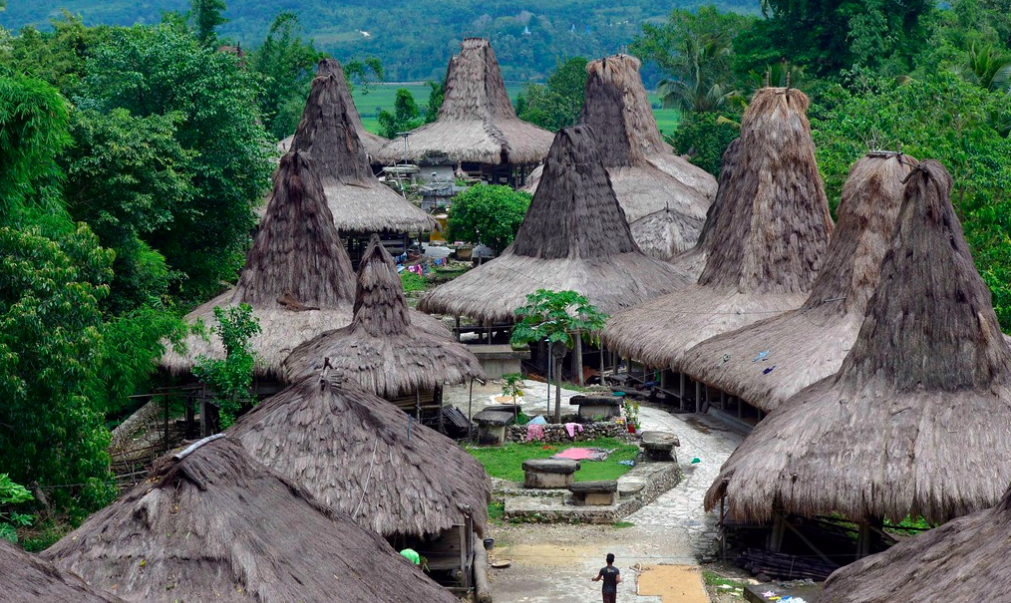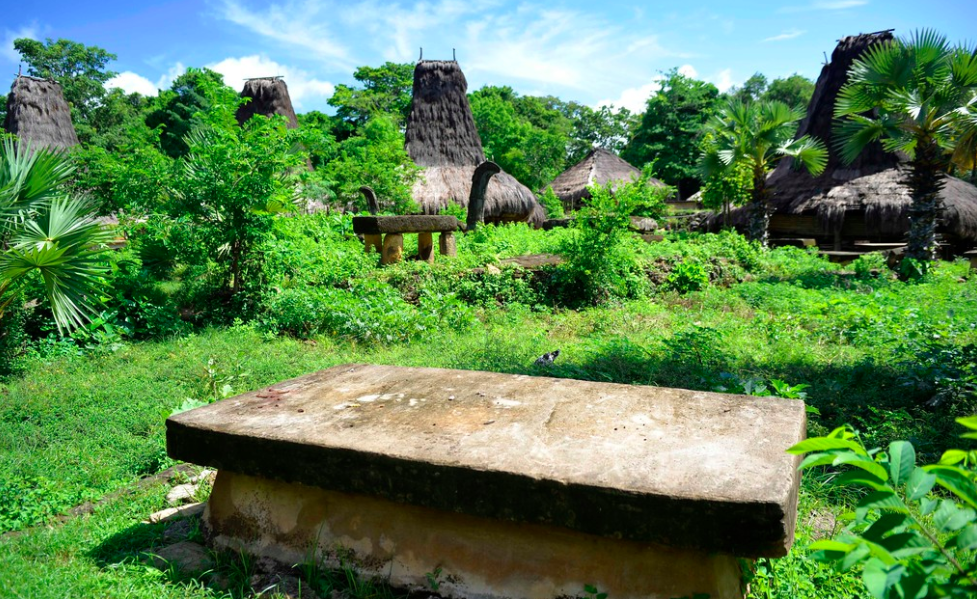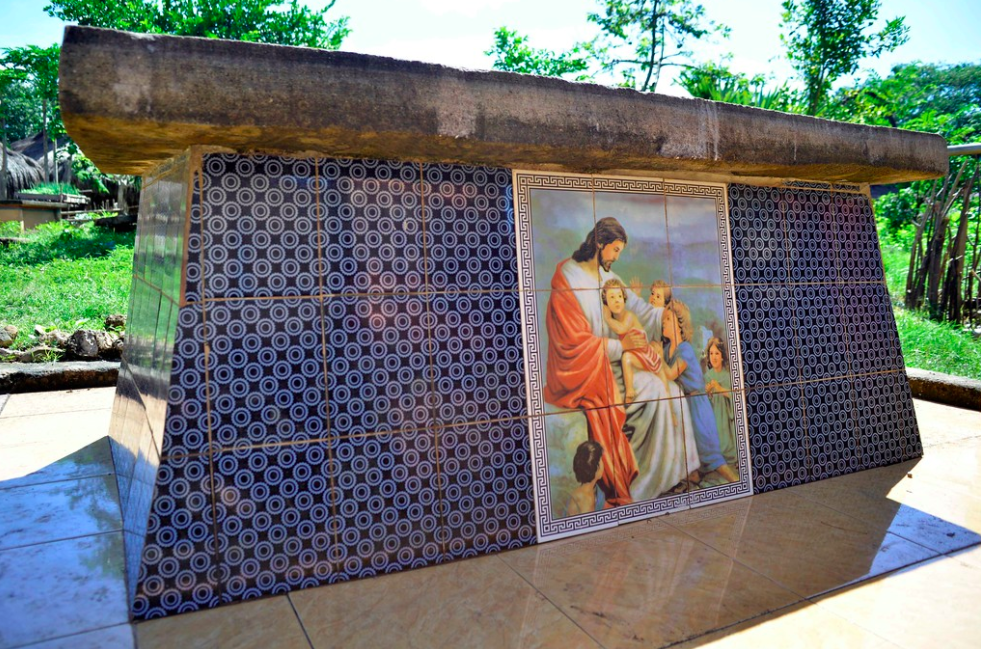Sumba: Inside Indonesia's secretive Marapu religion
People are born in debt on Sumba, thanks to the expensive burial rites on the island

Your support helps us to tell the story
From reproductive rights to climate change to Big Tech, The Independent is on the ground when the story is developing. Whether it's investigating the financials of Elon Musk's pro-Trump PAC or producing our latest documentary, 'The A Word', which shines a light on the American women fighting for reproductive rights, we know how important it is to parse out the facts from the messaging.
At such a critical moment in US history, we need reporters on the ground. Your donation allows us to keep sending journalists to speak to both sides of the story.
The Independent is trusted by Americans across the entire political spectrum. And unlike many other quality news outlets, we choose not to lock Americans out of our reporting and analysis with paywalls. We believe quality journalism should be available to everyone, paid for by those who can afford it.
Your support makes all the difference.“Men here are often born already in debt,” says Ansel Mus Rangga as we stand next to a monolithic tomb that makes Stonehenge look like a row of dominoes. “If their fathers or grandfathers couldn’t afford to build tombs for deceased family members, then the debt is passed on to the next in line.”
Sumba, an island in eastern Indonesia, is home to the unique Marapu religion. The people here – one of the poorest islands in the archipelago – worship a combination of ancestors, natural spirits and an all-seeing, all-hearing god whose name must not be pronounced. Ansel, a local guide with Backyard Travel, explains that in English, you could only call him “Bigger Eyes, Bigger Ears, Never to Say the Name”.
Whoever he is, he’s a pricey god to follow.
Paradoxically, it’s more expensive to build a house out of relatively cheap local materials than it is to build a modern cement house because during the building of traditional houses, known as rumah adat, it’s compulsory to sacrifice large quantities of animals. In Sumba’s villages – such as Prai Ijing, where I visited – the centre of the community is reserved for the dwelling places of the dead. And they cost even more.
Throwing a funeral on Sumba can be crippling – for lower castes and royal families alike. Tombstones weigh up to 70 tons and hundreds of men must be fed and entertained during the months it might take to drag them by hand from the quarries. Mechanical transport is an option these days but it’s rarely employed by the Sumbanese who say that “the old ways are the best”.
To a Western way of thinking the tombs are treated in a slightly cavalier fashion: used as tables for drying wet clothes or rice, as a resting place for dogs, a playground for children – even as a convenient place to mount a satellite dish.

Because the tombs are such an integral part of the village, the dead continue to play a part in daily village life. In this highly feudal island, it has always been important to protect the tombs. “We bury our dead with their prized possessions,” says Tiger, a guide at Nihi Sumba, a luxury resort on the island whose name is often synonymous with Sumba. “When they’re not inside the villages, sometimes tomb raiders steal from them.”
The graves of the royals are often accompanied by those of their staff, too. “In the old days a king might have his servants locked up alive in the tomb to serve him,” says Tiger, pointing at a small tomb next to the 70-ton Umba Sawola tomb in Anakalang district, central Sumba.
Not that those old days are so long ago. In 1971, the year in which this tomb was being carved and transported across Sumba’s Anakalang heartlands, the ruling family sacrificed 350 buffalo to feed the thousand men who dragged it for almost a year from the quarry 3km away.
Buffalo are still the major status symbol for Sumbanese Marapu worshippers of all castes, and today a buffalo might be worth £3000 – more if the horns are particularly spectacular.
“A new law says that people can only kill a maximum of five animals per funeral,” says Dato Daku, a manager at the Sumba Foundation, which supports local communities by building wells, schools and clinics. “It’s designed to limit financial damage on families.” But not everyone is playing by the rules. “People will always try to kill more animals,” he says. “Big tombs might take more than 100 men to move and unless the family feeds those workers there will be no more tombs like that. For many Sumbanese it’s a sacred obligation to build the biggest tombs they can for their dead.”
In recent years, however, cheaper tombs – made of cement and tiles – have become popular. Although Sumba is part of the world’s biggest Muslim country, many Sumbanese are nominally Christian. Even while Christians might choose to adapt the traditional tomb design, the expense is vastly reduced, since they can ignore the expensive sacrifices.

Sumba’s other claim to fame is the annual Pasola festival – a ritual horseback battle between several hundred riders. Although these days the spears have been replaced by blunt sticks, serious injury is common. But the ritual spilling of blood is said to benefit the rice harvest.
“Three years ago a man was killed in the pasola,” says Tiger, who’s Christian. “The harvest that year was one of the best ever. It was because of the blood on the ground.”
Travel essentials
Getting there
Flights from London to Sumba with Emirates and Garuda Indonesia start from £784, via Dubai and Bali. Backyard Travel can tailor a 4-day guided tour, with B&B three-star accommodation for £525 per person, based on two people travelling together.
Staying there
Nihi Sumba Island has rooms from £576pppn with a three-night minimum stay.
More information
The Pasola festival changes dates every year, and is announced a few days in advance.
Join our commenting forum
Join thought-provoking conversations, follow other Independent readers and see their replies
Comments